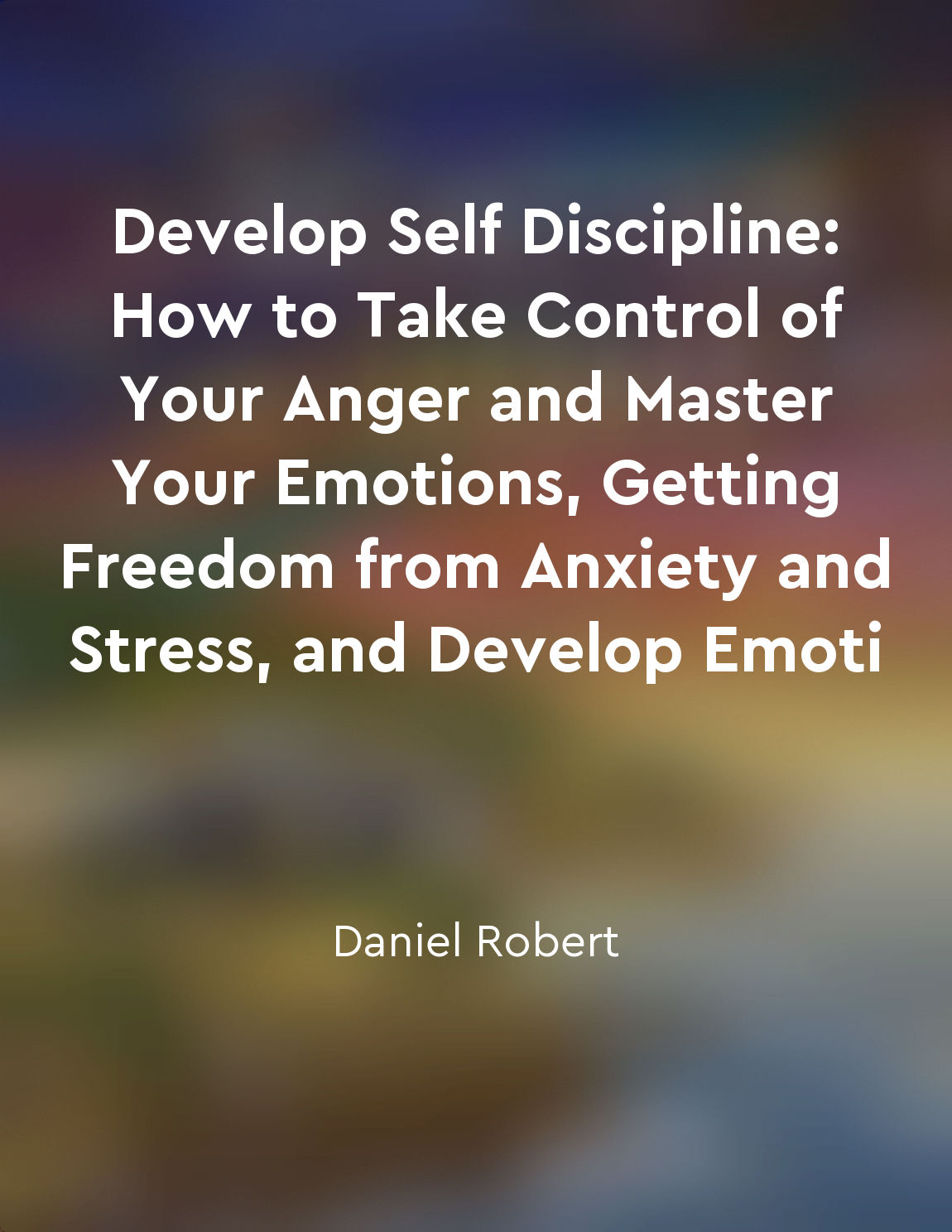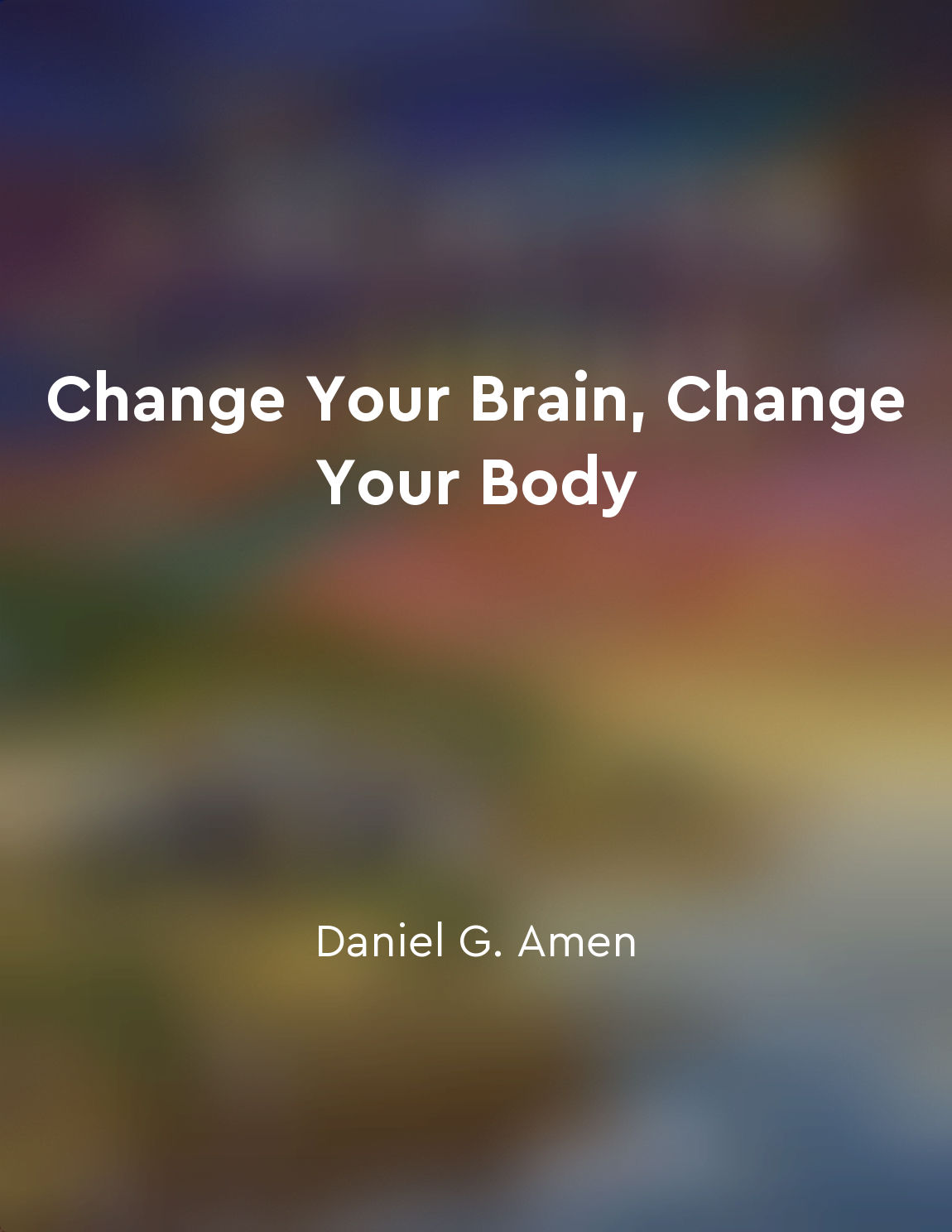Vitamin D plays a role in mood regulation from "summary" of The Happiness Diet by Tyler G. Graham,Drew Ramsey, M.D.
Vitamin D is not just essential for bone health; it also plays a critical role in regulating mood. Research suggests that low levels of Vitamin D are associated with an increased risk of depression, anxiety, and other mood disorders. This is because Vitamin D receptors are present in areas of the brain that are involved in mood regulation, such as the hippocampus and amygdala. When you don't get enough Vitamin D from sunlight or your diet, these receptors may not function properly, leading to imbalances in neurotransmitters like serotonin and dopamine. These neurotransmitters are crucial for maintaining a stable and positive mood. Therefore, ensuring adequate Vitamin D levels is crucial for overall mental well-being. One way in which Vitamin D influences mood is through its role in the synthesis of serotonin, often referred to as the "feel-good" neurotransmitter. Serotonin helps regulate mood, appetite, and sleep, among other functions. Low levels of serotonin have been linked to conditions like depression and anxiety. By supporting the production of serotonin, Vitamin D can help improve mood and reduce the risk of mood disorders. In addition to its role in serotonin synthesis, Vitamin D also plays a part in regulating the body's stress response. Adequate levels of Vitamin D have been shown to help reduce inflammation and oxidative stress, both of which can contribute to mood disorders. By supporting the body's ability to cope with stress, Vitamin D can help promote a more positive and resilient mindset.- The connection between Vitamin D and mood regulation highlights the importance of maintaining adequate levels of this essential nutrient. By getting enough sunlight, eating Vitamin D-rich foods, or taking supplements as needed, you can support your mental health and well-being. Prioritizing Vitamin D intake is not just beneficial for your physical health but also for your mood and emotional resilience.
Similar Posts

Setting boundaries and saying no when necessary is important for emotional balance
Having boundaries is essential for maintaining emotional balance. When we don't set boundaries, we open ourselves up to being t...
The mind and body are interconnected systems
The interconnectedness of the mind and body is a fundamental concept in understanding human flourishing. This concept highlight...
Personalizing your diet based on individual needs can enhance happiness
In our quest for happiness, one key factor often overlooked is the importance of personalizing our diets to meet our individual...

Individual brain patterns can be modified
The idea that individual brain patterns can be modified is a revolutionary concept that has the power to change the way we view...
Setting boundaries is important for happiness
Boundaries are not just physical barriers; they are also psychological defenses that protect us from harm. When we set boundari...
Embracing a holistic approach to health can lead to a happier, more fulfilling life
A holistic approach to health looks at the whole person - mind, body, and spirit. It recognizes that all aspects of our lives a...
Avoiding processed foods can improve our health
Eating processed foods can wreak havoc on our health. These convenient, ready-to-eat options are often loaded with added sugars...

Chronic stress can lead to burnout
Chronic stress, as we all know, can wreak havoc on our bodies and minds. When we are constantly bombarded with stressors, our b...

Regular physical activity is important
Regular physical activity is essential for overall health and well-being. Movement is a basic human requirement that impacts ev...
Changing habits requires conscious effort and persistence
Changing habits can be a challenging task that requires conscious effort and persistence. When we are trying to change a habit,...

